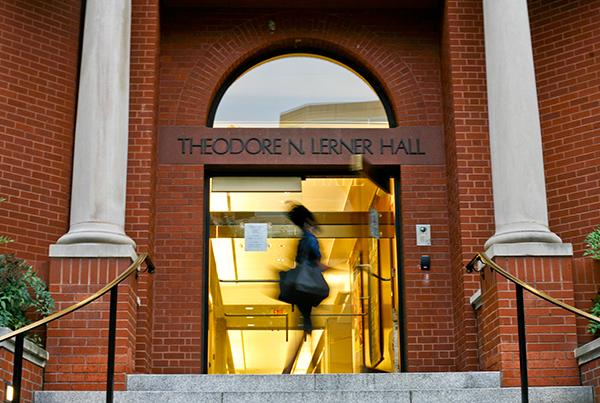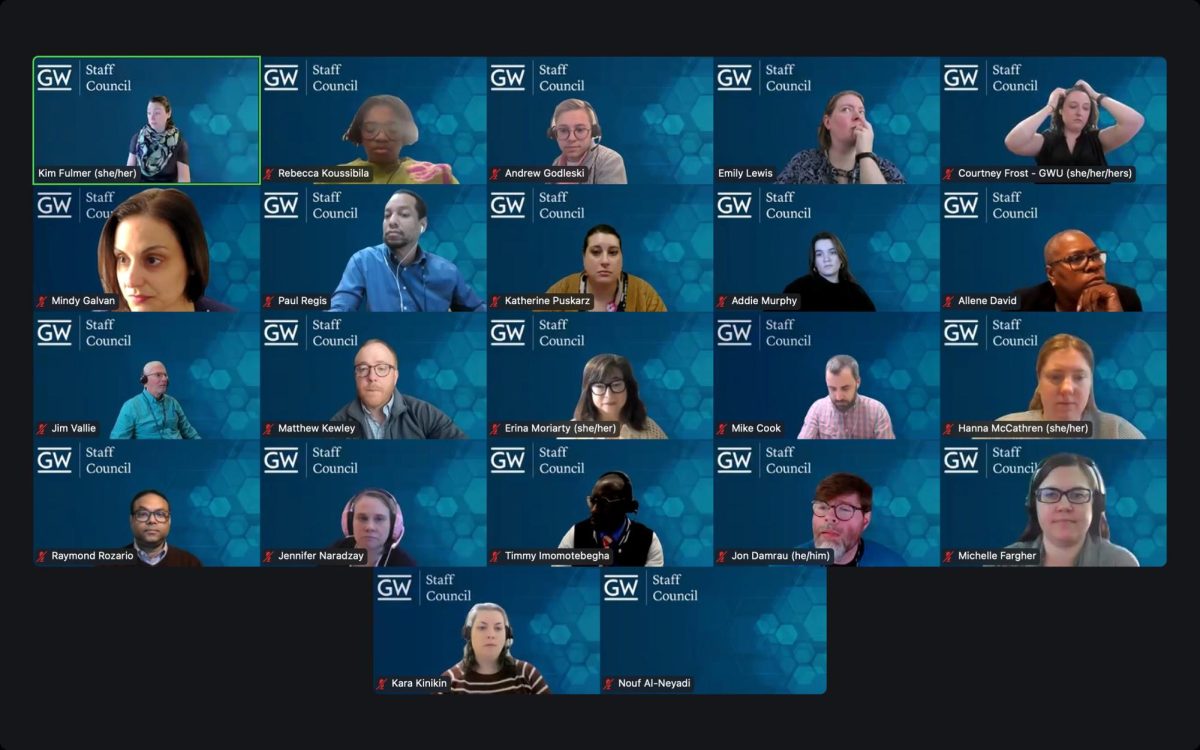When accomplished academics with hopes of becoming GW’s next dean of the business or law schools come to campus over the next few weeks, they’ll need to tote much more than research or management credentials.
They’ll also have to convince faculty committees and top administrators that they can fortify tuition revenue and coax tens of millions of dollars from donors.

“I hope that somebody is asking the people around the table who have given millions of dollars to the institutions, ‘If this person asked you for money, would you say yes?’” Board of Trustees chair Nelson Carbonell told the Faculty Senate on Friday. “I think if the answer to that is no, we probably have the wrong person.”
With declining applications threatening tuition revenue in the GW Law School, budget pressures in the GW School of Business and an upcoming likely $1 billion University-wide fundraising campaign, the high-profile dean searches will be punctuated by green question marks.
Groups of faculty, students and administrators will spend the next few weeks vetting finalists to lead the schools.
Deans have been required to spend at least 50 percent of their time fundraising for the past five years, as University President Steven Knapp adopted the model used at his previous school, Johns Hopkins University.
“We have a system today where the dean looks like an academic appointment, and it’s not an academic appointment. It’s more than an academic appointment,” Carbonell said. “The deans really are the ends where the rubber meets the road in fundraising.”
The academic leaders have become boots-on-the-ground fundraisers with mixed success. Fundraising is now up across the board compared to the previous administration, and top officials have heralded the achievement of public health school dean Lynn Goldman, who helped secure the University’s largest ever donations – a combined $80 million gift – earlier this month.
But deans’ duties have been stretched as they deal with pressures from Rice Hall and some try to fight off faculty opposition that’s sometimes the result of overly ambitious planning. The next leaders of the law and business schools will both take over after considerable controversy uprooted their predecessors.

Paul Schiff Berman in the law school moved to a position leading online education in the provost’s office after faculty revolted against him in late 2012. Doug Guthrie faced similar uprisings during his tenure in the business school, and was fired from his deanship last fall after he overspent the college’s budget by $13 million.
The next business school dean will need considerable budgeting and managerial experience to steer past pressures, search committee chair Murat Tarimcilar said.
“The next set of conditions are there, but it’s up to them to come and meet with us and get us excited about themselves,” he said.
Next week, the business school search committee will begin off-campus interviews with semi-finalist candidates. Tarimcilar said the committee hopes to bring candidates to campus starting the second week of April.
James Bailey, a management professor and member of the search committee, said candidates ranged from rising stars without experience at the dean level to those with nearly a decade of experience as a dean, but added that there were benefits to each.
“The proven person is a safer choice, but do they introduce the energy and the innovation [of] the rising person?” Bailey said. “It’s kind of the same question on the other side. Maybe less safe, but do they have the personality or the drive?”
In the No. 20 law school, the next leader will decide how the college will handle a steep decline in applications. GW Law’s acceptance rate jumped from 29 percent to 42 percent this year, after the class size jumped about 80 students as GW and other law schools have received fewer applications.
The school’s median LSAT score among accepted students also dropped two points as the school aimed to bring in more tuition revenue.
A group of about 10 candidates for the law school’s next dean have already started coming to campus to meet with faculty and students.
Some had suggested the next dean should follow former dean Paul Schiff Berman’s plan to shrink the class size, though others predicted that application numbers would rebound, Provost Steven Lerman said.
“I think that’s a strategic question for the next dean,” Lerman said. “I think the next dean’s going to have to be nimble to that, to be open to that, because I don’t think anybody knows.”
Roger Schechter, chair of the law school search committee, said candidates would continue coming to campus through mid-April. The entire law school faculty will vote on three final candidates for GW’s top administrators to select a dean at the end of next month.







